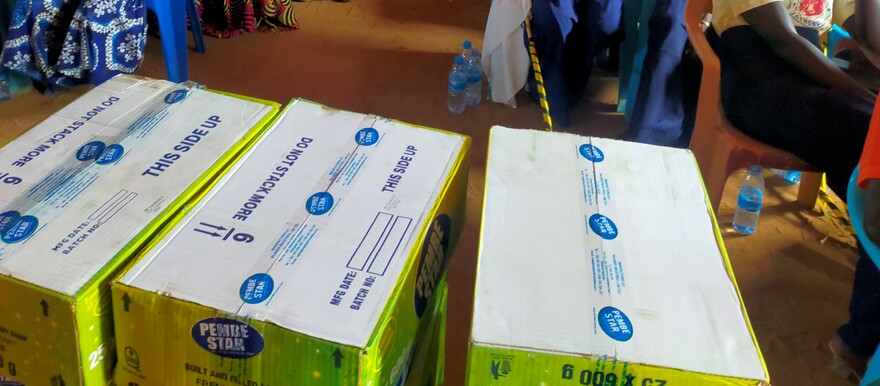The leadership of Twic East Youth Association in Juba on Saturday distributed reusable sanitary pads, soap, and gumboots to about 270 women, girls and farmers at the Mangala IDP camp in Central Equatoria State.
Speaking to reporters after handing over the items to the beneficiaries, Arok Dut Arok, Twic East Youth Association Chairperson, said they decided to distribute the items to the IDPs originally from Jonglei State to boost their morale and encourage them.
“We brought about 270 sanitary pads for the girls and young mothers and we also brought 60 gumboots that are for the farmers to protect them from snake bites when they go for cultivation in their farms. Also, we brought 35 cartons of soap and other items to raise their spirit and encourage them to feel that we are concerned about the people here,” he explained.
Dut noted that the items distributed are not enough to meet the needs of all the IDPs, but they plan to train 15 people with their own contribution to make the sanitary pads using environment-friendly materials that will take care of the needs of most of the women and girls.
He revealed that the plan to train the 15 people to make the sanitary pads will cost them about 8,000 US dollars.
Globally, refugee and IDP girls and women often lack the ability to manage their menstruation safely and with dignity due to a lack of adequate facilities, products and knowledge. Reusable pads have rapidly gained interest as a more sustainable, cost-effective and environmentally friendly solution.
Meanwhile, Mabior Kiir, the youth accusation secretary of health, environment and agriculture, emphasized the importance of menstrual hygiene among the displaced communities.
“We are aware of how menstrual hygiene can support women and ladies of childbearing age because good menstrual hygiene will lead to a healthy life, and if you are healthy, it means that you are free from urinary tract infections,” he said. “We know young girls who go to schools with the perception of some taboos when the menstruation period comes, they end up not going to school just because of not being taught about menstrual hygiene.”
For her part, Yar Majok, a beneficiary of the initiative, welcomed the donation by the Twic East youth association, saying it has been very difficult for them to access menstrual hygiene kits.
“It is very difficult for us to get sanitary pads here for us as girls. We use clothes which are not good because if you go to public places, it is not good. We cannot even go to school if you are seeing your period,” she said.
Besides the lack of sanitary pads, Majok also complained of a lack of quality education, health services and access to clean water in the Mangala camp.




